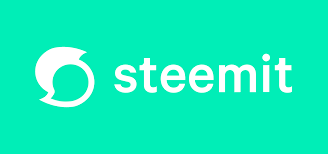Steemit: Empowering Content Creators Through Blockchain
Steemit is a decentralized social media platform built on blockchain technology, offering users the opportunity to create, curate, and engage with content while earning cryptocurrency rewards. Launched in 2016 by Ned Scott and Dan Larimer, Steemit introduced a novel approach to content creation and distribution, leveraging blockchain to reward users for their contributions and interactions.
Key Features of Steemit:
Blockchain-Based Rewards: Steemit utilizes a cryptocurrency called Steem to reward content creators and curators. Users earn Steem tokens based on the popularity and value of their content, as determined by the community through upvotes and engagement.
Decentralized Governance: Steemit operates on a decentralized governance model, allowing users to participate in decision-making processes through consensus mechanisms. This ensures transparency, fairness, and community-driven development.
Content Monetization: Unlike traditional social media platforms that rely on advertising revenue, Steemit enables content creators to monetize their work directly through cryptocurrency rewards. This incentivizes high-quality content creation and fosters a more equitable distribution of value.
Immutable and Transparent: Content on Steemit is stored on a blockchain, ensuring immutability and transparency. This prevents censorship and manipulation, providing users with greater control over their content and data.
Community and Ecosystem:
Steemit boasts a vibrant and diverse community of content creators, developers, and enthusiasts who actively contribute to its growth and development. Beyond the Steemit platform itself, the ecosystem includes various decentralized applications (DApps) and services built on top of the Steem blockchain, offering additional opportunities for engagement and monetization.
Challenges and Opportunities:
While Steemit has gained traction as an innovative platform for content monetization, it faces several challenges:
Scalability: Scalability remains a significant concern for Steemit, as the platform strives to accommodate growing user demand and increase transaction throughput.
User Experience: Improving the user experience and onboarding process is crucial for attracting and retaining users, particularly those new to blockchain technology.
Competition: Steemit faces competition from other social media platforms and decentralized alternatives, necessitating continuous innovation and differentiation to maintain its relevance.
Despite these challenges, Steemit presents numerous opportunities for content creators to monetize their work, engage with a global audience, and participate in a decentralized ecosystem that prioritizes community empowerment and value distribution.
Conclusion:
Steemit represents a paradigm shift in the way content is created, shared, and monetized online. By leveraging blockchain technology and cryptocurrency rewards, it empowers users to take control of their digital presence and participate in a more equitable and transparent content economy. As Steemit continues to evolve and expand its ecosystem, its impact on the future of social media and content creation remains significant.